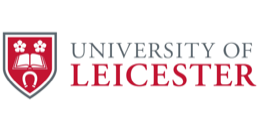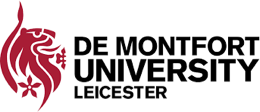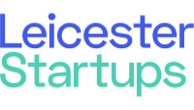Selected Projects (click here for the full list)
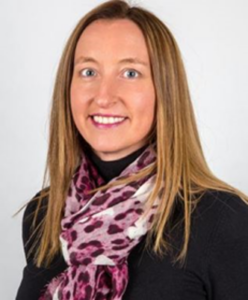
An online assessment tool to measure individuals’ awareness of developmental dyscalculia, a specific and persistent difficulty in learning mathematical skills.
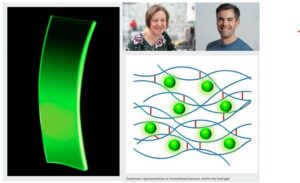
We have developed a new polymeric material that can be embedded with a variety of sensors to detect chemical ions. Our patented technology can be integrated into a range of existing devices for monitoring ion levels in samples – in real-time.
Our technology creates a range of benefits for following applications.
Medical – Point-of-care diagnostics to monitor blood content
Agriculture – Pesticide and herbicide monitoring
Environment – Drinking water analysis and sampling
Food and drink – Quality control and contaminant detection
Security and defence – Stand-off detection of harmful agents
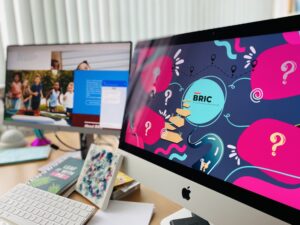
Building Resilience in Children (BRIC) using innovative App based Games
BRIC (Building Resilience In Children) firmly believes that resilience is an essential trait that can empower children to navigate life’s challenges with confidence and adaptability.
AT BRIC we taking a multimodal approach, using creative methods, content creation, and game development, with our community at the centre to equip parents, educators, and caregivers with the knowledge, tools, and strategies needed to foster resilience in children.
Through our curated articles, insightful blog posts (602 Facebook subscribers), and expert interviews (1600+ YouTube subscribers) we offer evidence-based insights and practical advice on cultivating resilience in children. Our content covers a wide range of topics, including emotional intelligence, problem-solving skills, positive mindset, stress management, and healthy coping mechanisms. We are keen on gamifying curriculum and equip children with the skills they will need to survive and thrive in the knowledge society.
Our mission is to support children’s resilience at scale by developing a mobile app for schools and parents supported by an online platform with a comprehensive library of interactive content, videos, and tutorials tailored to suite a child’s age, personality, and individual needs.
We are seeking additional expertise and resources to expedite the introduction of our inaugural product (mobile app) in to the market in 2024. Specifically, we are interested in engaging with the academic, business and finance community for the following:
1. Resources and collaborators sought:
2. Part-time resources to support product development and commercialisation.
3. Mobile App developer – we ae working with an App developer, but are open to new collaborations.
4. Branding, marketing and sales expertise to formulate and execute the product launch strategy.

LiquidGold: next generation carp care for the angling, ornamental and aquaculture industries
Fish health care products in the angling, ornamental and aquaculture industries are based on very old toxic chemical formulations that are unsafe for fish and humans, bad for the environment and are non-biodegradable.
There is an urgent need for alternative safer, healthier and sustainable solutions.
‘LiquidGold’, developed by academics in the Faculty of Health and Life Sciences at De Montfort University, is such a solution.
LiquidGold is the only environmentally friendly, non-toxic and biodegradable health care product. It is designed to keep fish in prime condition year-round, it can be actively used by anglers, fish keepers and fish farmers to prevent/cure disease and improve fish health and longevity.
The UK carp care market is conservatively worth around £50 million annually (at point of sale in angling and ornamental markets). The market for the product is tens times greater in the EU. The potential market also includes USA, Asia and Africa.
We have already generated strong market interest, secured one global brand to manufacture the products here in the UK, and another who will market/distribute the product via established social media channels and international distribution networks.
We require the following additional expertise and resources to accelerate our first product into the market/to transition the idea from the ‘lab to the lake’ by the end of 2024 either through a new spin-out company or licensing the IP.
The expertise and resources sought from the business and finance community are:
• Member of staff: full-time resource to dedicate to further developing the product
• Non-executive director: experienced business professional, with an interest in fish/fish keeping/fish farming/angling/the natural world. An expert with proven track record commercialising IP/knowhow (e.g., securing funds, creating licensing deals, product iterations and new product lines).
• Marketing expertise: in marketing, branding and sales to develop the product strategy and implementation plan to build the brand, website, vlogs, social media presence, etc.
Interested then let’s talk…

The nonconventional ‘EnHANCE’ combi technology transforms and ‘enhances’ air quality to deliver clean and healthier indoor environments by simultaneously warming and cleaning the room (space).
The patent filed ‘EnHANCE’ energy efficient autonomous technology is suitable for use in the home, office and in agricultural settings e.g., in EU animal housing, poultry farms and grain storage, the latter for its mould and pathogen reduction potentials while reducing heating demands.
Successful delivery of this solution intertwines the UK government’s clean air strategic priority with the global net zero drive for low carbon indoor space warming

In 2019, England and Wales lost 3.1 billion litres of water every day from leakage in water distribution systems (WDS).
e-Favor is proven water leakage detection and localisation Software tool for water distribution systems. An automated AI powered solution to reduce water loss due to leaks and burst pipes. The e-Favor technology allows water utility companies to detect and localise leakage/burst pipes quickly using their existing hydraulic models/digital twins of the WDSs.
The main customers for e-Favor are and will continue to be water utility companies (leakage reduction prioritised in Asset Management Plans by UK and International water companies). With the growth in Smart Cities consultancy and modelling software development companies are potential customers.
In England and Wales alone, there are 11 regional water and wastewater companies and a further 5 water-only companies.
Already, the method for localisation of leak points in their District Metered Areas (DMAs) is being utilised by a large water-only supplier in the UK. The company has achieved 100% success using the solution in 30 DMAs (the software enabled the company to localise even hidden leaks), and now they are rolling the solution out to 100 DMAs. Clients in Belgium, China, Sri Lanka and Palestine are/will be utilising the e-Favor solution.
To further accelerate the commercialisation of the innovative software platform we are looking for the following additional expertise and resources:
• Marketing Development Officer for continuous development of branding and new partnerships
• Software Test Engineer
• Research Assistant for Technology improvement/innovation
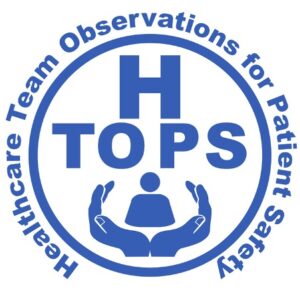
Healthcare Team Observations for Patient Safety (HTOPS)
Today, the general public are very aware that mistakes happen when they come into the NHS and these feature on everyday news bulletins. Keeping patients safe is now the number one priority of the NHS. Whereas historically our learning has come from analysing mistakes which has led to a blame culture, there is now a new direction of travel to be constantly vigilant by raising concerns openly in real time. These two different ways of analysing safety are known as Safety I (retrospective) and Safety II (prospective). Patient safety remains a challenge and both of these approaches are required.
Training for Safety I and II begins before qualification and is a pivotal part of required learning for remaining registered and able to practise. Training tools are constantly being sought to help. The most recent successful tool has been SBAR, a communication tool. We were keen to help final year medical students appreciate the complexity of patient safety and recognise that other high-risk industries constantly observe in order to make sense of their practice. In aviation, observations have led to improved standards. Since 2016, we have been exploring what this might mean for observing everyday practice in the NHS. In 2018, we received a Wellcome Trust (Leicester Institutional Strategic Support Fund) to develop this thinking into a digital tool for observing and recording good and suboptimal practice. Working with the University of Leicester IT research team, we have been developing an app for use in real time in any healthcare setting; Healthcare Team Observations for Patient Safety (HTOPS). HTOPS offers a testable approach for learning and requires further study. The University Hospitals of Leicester (UHL) Trust Board support this work, recognising how the findings of the tool highlight ‘light noise’, that is everyday lapses and mistakes that need addressing. The tool can also highlight excellent practice.
Professor Liz Anderson and I currently have a centenary-awarded PhD student (Radhika Oli) exploring the learning potential but we now need to develop the App further. While we have built a Native App, we are now looking to work with an experienced software developer to improve the user experience and user interface. We would also like to develop a database platform and Application Programming Interface (API) to work with what we have already built. We are seeking a tool to work on any device.
This app has huge potential not only for health professionals’ learning (students and staff) but also as a means for continually reflecting on the daily practice to keep patients safe.
Our findings from the Wellcome Trust funded project were published in 2021:
Anderson, E.S., Griffiths, T.R.L., Forey, T. et al. Developing Healthcare Team Observations for Patient Safety (HTOPS): senior medical students capture everyday clinical moments. Pilot Feasibility Stud 7, 164 (2021). https://doi.org/10.1186/s40814-021-00891-3
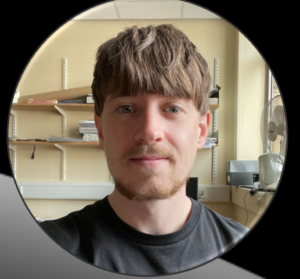
Unleash the future of biomedical assay validation with our groundbreaking software, the Validation Processor. Confronting the bottleneck in getting new tests to patients, our interactive graphical user interface, powered by R coding, accelerates the validation process from weeks to just minutes. With the ability to process all validation data in under 5 minutes, our software automatically generates crucial validation reports for national accreditation approval, revolutionising assay translation.
Securing copyright for the Validation Processor, we present a dual offering: a licensing model for monthly or one-time-use subscriptions and a consultancy service catering to laboratories worldwide. Our market spans NHS, research, and industrial laboratories, providing a standardised solution for validation, essential not only for patient testing but also for research trials and publications.
As we transition from development to deployment, funding is crucial for creating a company, launching a cloud-based server, and initiating marketing efforts. Join us in shaping the landscape of biomedical validation, and explore collaboration opportunities with experienced software deployers and marketing professionals. Together, let’s propel the Validation Processor towards widespread adoption and transformative impact.
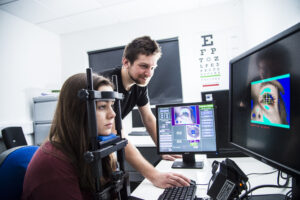
We have developed a portable smartphone app which can be used on any smartphone by anyone to measure concussion. It can indicate whether someone has a concussion pitch-side during sports matches or in hospitals, and may also be useful for any industry where concussion may occur e.g. Theme parks, construction, etc.
https://www.lboro.ac.uk/research/national-rehabilitation-centre/research/projects/eye-tracking-concussion/
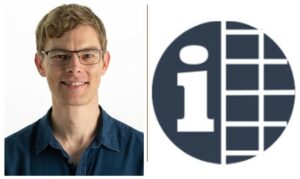
In many University assessments, the only feedback students receive is an overall final mark. INDAF provides students with a more detailed account of their performance in the form of a feedback report. If an assessment can be divided into categories, performance can be rated for each category, giving students more specific information about their strengths and weaknesses within the assessment to improve their performance.
INDAF provides a feature that does not exist in Loughborough’s Learn platform (for students) and it offers users a tool to create customised feedback reports flexibly (than buying several apps to carryout different tasks). INDAF offers options to enable collaborative marking and to customise to a range of assessments. (eg. choice of question number, category number, or exam structure, assessments with optional questions vs essay assessments vs MCQ assessments).
INDAF has been successfully used for one year in three Loughborough University Schools and it could be rolled out more widely in higher education, or in any setting for which performance is assessed and fed back (so also has potential use in industry).

Innovative Modular Equipment for Lithium and Sodium Ion Battery Manufacturing.
As the demand for small electronic devices, wearables, IoT devices, and medical devices continues to grow, there is a corresponding increase in the demand for rechargeable coin cells. To meet the growing market demand efficient manufacturing technologies and processes are needed to create these energy storage components.
The limitations of existing equipment used for the fabrication of rechargeable Lithium and Sodium Ion battery manufacturing led to this innovation. The product’s USP is in the production of a single battery manufacturing machine incorporating multiple functions (crimping & de-crimping of batteries, cutting & punching of battery-related electrodes and separators) which is compatible with existing punching machines.
A UK-based company is interested in commercialising both products to achieve global sales. To further accelerate the commercialisation of the innovative manufacturing equipment we are looking for the following additional expertise and resources:
• Resources to pay for branding and marketing expertise and to hire a mechatronics engineer to develop the prototype (e.g., PhD student, Postdoc, intern).
• Company partner/manufacturer/trader with expertise in the full product development cycle (including raw materials supply chain) to inform the integration of multiple processes into a single machine.
• Organisations working in battery-related applications interested in testing the technology in their R&D development and/or manufacturing process to inform the product development.
Full Project List

The rapid spread of multi-drug resistant bacteria causing infections cannot be treated with current antibiotics. Antimicrobial drug resistance is a tangible threat and has an impact on national economies.
Prosthetic Joint Infections (PJI) affects the joint prosthesis and surrounding tissue and is a major complication after surgery, leading to implant failure following joint replacement. PJIs has devastating effects on patients and can sometimes be fatal.
We have developed IP in antibiotics to treat persistent infections. The new and recently patented antibiotic is highly active against Staphylococcus aureus strains in vitro. We plan to use the new antibiotic to develop new treatments for PJIs. In the UK alone, between 2005 and 2023, there has been a 4.6-fold rise in PJI cases.
The key customers are big pharma or SMEs interested in licensing opportunities. The global PJIs Market is projected to increase at a Compound Annual Growth Rate of 13% in the coming years. In 2021, the global Prosthetic Joint Infections market was valued at USD 482.9 million and is projected to reach USD 1043.33 million by 2028.
To complete the proof-of-concept pilot study, we require expertise and investment for:
1. Pre-clinical in vivo studies to determine efficacy and toxicity and drug metabolism / pharmacokinetics profile of the antibiotics
2. Microbiologists/Clinicians to determine synergistic effects (i.e., checkerboard assays) between our new antimicrobial agent and established antibiotics
Venture capital will be sought at following proof of concept stage.
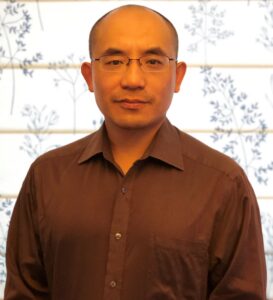
Our innovative approach utilises bacteriophage detection to identify bacteria with a sensitivity level that is ten times more efficient than traditional bacterial diagnostic methods. This considerable advancement signals the dawn of a new era in combating tick-borne diseases and bacterial infections in general and represents a transformative shift in global bacterial detection strategies. Our prototype showcases our capability to arm clinicians with a crucial tool for confirming bacterial infections, thereby heralding a revolution in medical diagnostics.
This progress not only enhances the accuracy of diagnoses but also facilitates the development of targeted therapies, marking a significant advancement in public health. It underscores the potential for profitability and a profound societal impact within the healthcare sector.
The commercial introduction of our phage-based test, in partnership with a European company, has significantly improved patient care by providing precise diagnoses for those suffering from tick-borne diseases, particularly those presenting with atypical symptoms. Continuous efforts to refine and streamline this method are anticipated to extend its utility, expanding the range of patients who can benefit from this innovative diagnostic technique. Such developments are critical in the management and treatment of tick-borne diseases, underscoring the essential role of innovative diagnostics in transforming patient care.
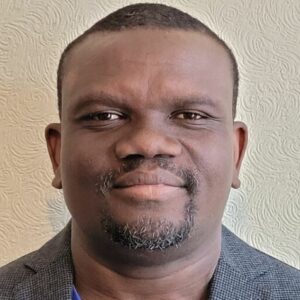
The inability to properly regulate one’s emotions has been linked to some types of mental health problems such as emotional impairment. Some patients with emotional problems are unresponsive to psychological treatments and medication, often with side effects. Complex treatment methods such as magnetic resonance imaging (MRI) are quite expensive and not easily accessible. EEG devices may involve going to a laboratory and both devices need to be operated by specialists.
Neurofeedback is a useful tool for emotion regulation and the enhancement of brain performance. Commercially available mobile and portable neurofeedback devices are costly and other methods such as mindfulness and yoga, by individuals in the home, generally are unsupervised methods of delivering mental imagery training but they do not provide feedback on the effects of the training.
New cheaper, easy to use and easily accessible therapeutic methods with training feedback loops are needed to mitigate and treat the effects of emotional dysregulation.
Our emotion modulation technology for better mental health & wellbeing using smart devices enhances user brain performance by regulating emotions.
Using facial expression feedback, the technology helps mitigate emotional impairments such as depression and anxiety to change/enhance users emotional focus and responses.
In addition, the technology has potential to become a powerful mental health resource in health and disease management.
To accelerate the commercialisation of this early-stage innovative software solution we are looking for the following additional expertise and resources:
• Technical expertise to develop, test and deliver a working prototype
• Research assistant to carry out field trials to validate the technology

LeicSurvey is an innovative digital survey tool which combines a simple and attractive user interface with powerful tools for collating and presenting complex data, including changes in user engagement and satisfaction over time. Our state-of-the-art data analytic pipeline enables mining, processing, and visualisation of multi-dimensional data and trends that may otherwise be missed. LeicSurvey is replacing existing feedback gathering methods in the hospice and heritage sectors that were labour-intensive, impractical, non-inclusive, and time consuming. LeicSurvey was built considering a dignity by design approach that puts the users in control. LeicSurvey streamlines feedback gathering to aid retention, and its clever algorithm translate simple input into data suggesting real-time improvements across multiple sectors.
The LeicSurvey project welcomes collaborations to assist in scaling the business, guiding product development, and marketing the survey across various sectors. Funding could be used to employ consultants for adoption across numerous hospices nationwide and providing developmental opportunities for students to enhance the user interface and evaluate the tool.

Discover a groundbreaking project at the intersection of healthcare and technology! Instant Access Medical is revolutionising patient care for those with rare diseases. Our dynamic digital solutions empower individuals to manage their conditions with ease, featuring clinical care dashboards, targeted discussions, and symptom checkers.
In collaboration with Signigene, we’re pioneering smarter prescribing decisions using pre-emptive pharmacogenetic profiling. By ensuring the right drug, dose, and timing, we aim to minimise side effects and inefficiencies, delivering truly personalised care. Plus, our platform facilitates patient feedback to enhance confidence and compliance.
Instant Access Medical leads rare disease management, Signigene owns the cutting-edge genetic data solution. Challenges include navigating NHS workflows and data governance. Collaboration opportunities abound, from rare disease experts to pharmacogenetics specialists.
Join us in reshaping healthcare—let’s make personalised medicine a reality!
My research is in the field of Visual management i.e. using visual tools to support organisational decision-making. The proposal is to develop an AI tool that audits visual tools and provides suggestions on how to improve current designs.
Visual management is used very widely for example in the form of Gannt chart, team boards, agile boards and Quality Improvement tools. It is used used by a broad range of organisations across multiple industry sectors including healthcare, manufacturing, pharmaceuticals, engineering, as well in the public-sectors such as the NHS and local government.
The current available advice for the design and use of such tools is pretty basic and this tool will use my existing research and make it accessible in an automated form to a wide range of users.

“Globally, there is a problem concerning a lack of suitable tools for sensitive and selective detection of drugs and explosives. For this reason, our work is focussed on the development of novel detection techniques based on robust synthetic receptor as an alternative to fragile antibodies and enzymes.
Molecularly imprinted polymers (MIPs) are very robust and cost-effective materials which can be exploited in extreme environmental conditions. MIPs have excellent binding affinity to relevant forensic targets and integrated signalling function; hence we propose a practical solution for using these materials for the detection of drugs and explosives. We have successfully evaluated our technology during the NATO project G5361 and EU funded BorderSens project. Our team is currently working towards integrating MIPs with inexpensive portable detectors such as mobile phones. We are looking for a suitable commercial partner (SME) who would work with us on commercialization of our drug/explosives detection technology, in particular for border control and policing operations.
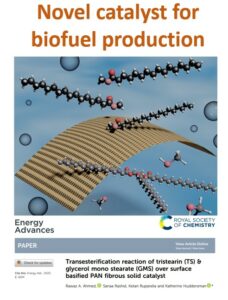
The need for greener/alternative fuels is well known as is the technology to convert cooking oil and fatbergs* into biodiesel.
*Wikipedia says “A fatberg is a rock-like mass of waste matter in a sewer system formed by the combination of flushed non-biodegradable solids, such as wet wipes, and fat, oil, and grease (FOG) deposits. The handling of FOG waste and the build-up of its deposits are a long-standing problem in waste management, with “fatberg” a more recent neologism. Fatbergs have formed in sewers worldwide, with the rise in usage of disposable (so-called “flushable”) cloths.
The manufacturing processes to turn cooking oils and fatbergs into biodiesels is not optimised and therefore not economically sustainable alternative to fossil fuels.
At DMU, we have patented a novel ‘acid/base catalytic mesh technology for the production of biodiesel’ from sustainable feedstock (waste cooking oil, fatbergs) in a one pot production in a continuous flow process for which Biodiesel producers are the target market. The next steps on the commercialisation pathway are to establish small scale technology production demonstrator, develop and optimise the production processes and engage potential users/customers.
We are looking for the following additional expertise and resources to accelerate the commercialisation of this innovative solution:
• Resources to employ a research fellow to model and optimise lab tested compounds for biodiesel production processes
• Business professional with experience/specialist knowledge of biodiesels/green fuels to test and ultimately license the production processes with commercial collaborative partners e.g. water utilities and biodiesel companies
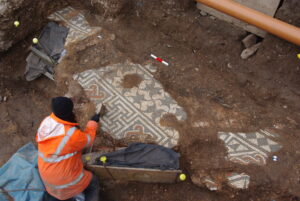
Embark on a journey with Collective Heritage, where cutting-edge university research, sector prowess, and lived experiences converge to innovate heritage projects of all sizes. We cultivate a shared understanding of audience needs, sparking creative collaborations to enrich lives and livelihoods. Through vibrant programs, we boost graduate retention, remove participation barriers, and inspire the next generation.
Collective Experience, Action, Impact: A Unified Vision
With a vast network including Attenborough Arts Centre, East Midlands Oral History Archive, and more, we’re poised to scale. Development opportunities abound—from refining our website’s functionality to GUI development, business plan enhancement, market testing, and capacity building.
Challenges and Resources: Charting the Course Ahead
Scaling challenges beckon, met with a call for skilled personnel, functional web development, and a collaborative space at UoL. Opportunities for collaboration thrive with businesses, business developers, end-users, and sector suppliers.
Join us to co-create impactful events, consultancy packages, and training programs, fostering a lasting legacy in heritage transformation. Together, let’s redefine the future for consumers, community groups, museums, local authorities, and global partners alike.

Revolutionising Cosmetics with Bacteriophages: Unleashing Nature’s Antibacterial Marvels Worldwide
Embark on a cosmetic revolution powered by bacteriophages, nature’s safe, specific, and sustainable antibacterial wonders. Our groundbreaking proposal involves harnessing the innate power of bacteriophages and their encoded lytic enzymes to precisely target and eliminate undesirable bacteria on human skin and cosmetic devices. We anticipate the imminent filing of a patent application, safeguarding a particularly potent bacteriophage and its lytic enzymes. Additional valuable know-how enriches our intellectual arsenal.
Development Opportunities: We eagerly invite a visionary partner to co-develop avant-garde cosmetic products, tapping into the antibacterial prowess of bacteriophages.
Challenges: Navigating funding hurdles, perfecting formulations, and addressing the absence of a clear regulatory framework stand as primary challenges.
Resources Needed for Advancement: Securing financial backing is pivotal, alongside identifying an adept commercial partner for a joint venture aimed at creating market-ready bacteriophage-based cosmetic products.
Join us in this transformative journey as we actively seek a dynamic commercial partner or potential collaborators willing to initiate a spin-out company dedicated to developing cutting-edge bacteriophage-based cosmetic products. Together, let’s redefine the future of cosmetics with innovation rooted in nature’s brilliance.

Unlocking the potential of anti-cancer drug development, our project pioneers patient-relevant preclinical models, specifically patient-derived explant (PDEs). Rooted in biotech and anti-cancer pharmaceutical research, our models mirror individual patient responses, profiling multiple drug reactions for enhanced precision. Operating from the Leicester Cancer Research Centre’s advanced PDE Facility, our platform has garnered substantial investment (£4,000,000) since 2017, facilitating drug development breakthroughs. Now, we aim to expand, miniaturise, and establish a bio-repository, offering a swift, cost-effective solution for commercial partners in their drug discovery quests. The challenge lies in securing funding for platform advancement and increasing market visibility through a compelling online presence and marketing materials. Collaborate with us for digital content creation, graphic design, and partnership opportunities with biotech organizations and pharmaceutical companies. Together, let’s revolutionise anti-cancer drug testing for faster societal and patient benefits.
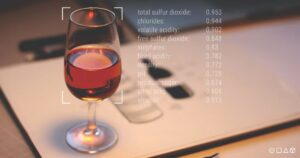
Predicting Wine Quality and Price
Embarking from the Copernicus Food hackathon and inspired by Kahneman’s insights, this visionary project combines Copernicus Satellite crop data, weather insights, and wine pricing data using machine learning. Led by a medical ethnographer, it steps beyond academia, aiming to predict wine quality and prices. The potential market spans wine drinkers to the entire supply chain, engaging merchants, wholesalers, and the restaurant trade. At its conceptual stage, the project seeks technical wizards—GIS, machine learning, and web design experts—and welcomes collaborators from the wine industry. Challenges lie in technical viability and customer demand, but the opportunity is monumental: crafting a service that not only enriches wine enthusiasts but could evolve into a viable business. Join us in this exciting venture, where innovation meets oenology.
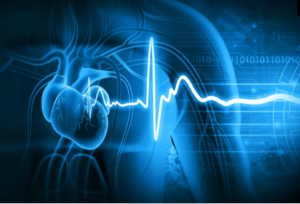
Revolutionizing remote cardiovascular diagnostics, our project addresses the urgent need for efficient solutions amplified by the pandemic’s impact. Leveraging modern electronic devices, our technology simplifies ECG data collection, transforming them into cost-effective diagnostic tools. Backed by MRC IAA and KEIPOC funding, we’re developing an ultra-low-cost ECG attachment in collaboration with the Renfrew Group. Designed for the NHS, our affordable ECG kit offers preventive care, aligning with their commitment to cost-effective healthcare. The disposable electrodes enhance convenience, making it ideal for both patients and healthcare providers. Catering to the US ECG equipment market projected to reach USD 3.31 billion by 2030, our project offers immense market potential. Challenges include regulatory compliance and securing funding. Collaboration opportunities abound, particularly with investors contributing to our transformative journey.
Join us in reshaping the future of remote cardiovascular diagnostics!

Our forest alerts from space won the Leicestershire Live Innovation Award (Space category) in 2023. Deforestation is a major source of greenhouse gas emissions worldwide. The equivalent of a football pitch is deforested in the world every six seconds. To combat deforestation, near-real-time information on forest loss events is needed by forest rangers in the field, who often patrol vast forest areas.
The Forest Alerts system developed at the University of Leicester in the National Centre for Earth Observation provides an innovative solution: The system automatically searches for deforestation events every 5 days with newly acquired satellite imagery at 10 metre resolution from the European Space Agency’s Sentinel-2 satellites. The images can even detect the felling of individual large trees. Users receive near-real-time deforestation alerts by email or a mobile app. The software is written in Python and is available freely on Github. All Forest Alerts can be logged in a dashboard or a GIS. This enables effective protection of forests from illegal logging and monitoring forest degradation, as required by the COP26 Glasgow Leaders Declaration to end global deforestation by 2030.
Our Forest Alerts are being used by the Kenya Forest Service in two Counties, in Kwale since 2019 and now in 5 Counties, with the intention to scale them up nationally. A GIS specialist in Nairobi sifts through new alerts and assigns those for investigation in the field to a forest ranger via WhatsApp. Rangers use the Maps.Me app to navigate to a Forest Alert and take action if they discover illegal activity in the protected forest. They report back to Nairobi on the incident with photos and actions taken. The Forest Alerts system was supported by NERC, NCEO, UK Space Agency, European Space Agency and BEIS and has been co-designed with the REDD+ Round Table in the Ministry of Environment in Kenya, which brings together NGOs, the National Alliance of
Community Forest Associations (NACOFA), the Kenya Forest Service, and universities in Nairobi.
The specific benefits provides by Forest Alerts according to the Kenya Forest Service is that they have made forest rangers more accountable, help to deploy rangers more effectively, and reduce deforestation through rapid intervention.
In the words of Kenya Forest Service staff, “…the results have been very
impressive with over 10 reports being received on a daily basis. With the feedback received from Kwale County and the input from the ENCOM section, a deliberate effort has been made to improve and enhance the tool further for an improved forest surveillance, comprehensive reporting and trend analysis in forest incidences and monitoring. The result has been an improved tool (survey123) that captures and digitizes the manual tool that is currently in use by ENCOM.” [Note: ENCOM is the Enforcement and Compliance branch of the Kenya Forest Service]
Supported by voluntary Community Scouts, ENCOM staff have successfully intervened in many cases and arrested poachers, human traffickers and illegal loggers in the protected forest areas.
We are exploring ways of commercialising the application of the forest alerts software with a view of offering a value-added service.
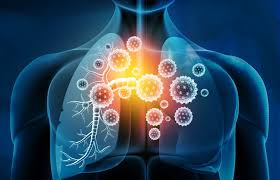
Revolutionising respiratory infection diagnosis, our project introduces Facemask Sampling (FMS), a groundbreaking method for collecting and analysing microbes. Using strips of a sampling matrix (SM), FMS offers a non-invasive, well-accepted approach, allowing continuous sampling without disrupting normal activities. With successful applications in tuberculosis and COVID-19, FMS has the potential to replace current diagnostic samples for respiratory infections. The absence of intellectual property in the current polyvinyl alcohol (PVA) strips presents an opportunity to develop a novel SM, offering a major advancement in the field. Challenges include creating a soluble SM that doesn’t interfere with downstream assays. Resources needed include hydrogel expertise, aerobiology skills, funding for personnel and equipment, making collaboration opportunities with material scientists and aerosol experts crucial for project success.
Join us in shaping the future of respiratory infection diagnosis, with vast market potential in healthcare, workplaces, and personal health.
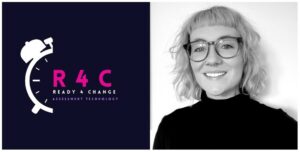
This tool is a scientifically rigorous, employee-focussed measure that helps organisations to assess and understand how contextually ready they are to implement and uphold a workplace bullying intervention (WBI). Underpinning research demonstrates that organisations can identify, pre-change, areas that threaten to disrupt intervention success and then can curate better working environments that allows prospective change programmes to be successfully implemented.
This method takes a bottom-up approach and assesses employee perceptions of how structurally ready they believe their organisation is to implement a WBI. Analysis of data collated via the tool allows for the development of organisation-specific full diagnostic reports and bespoke action plans. Action plans contains a series of quick and simple tasks that address the contextual inefficiencies identified within reports. After embedding the suggested actions, organisations will facilitate a (more optimal) context for WBI implementation, which has been shown to improve prospective change success alongside employee support and engagement.
This tool is the first of its kind to address this issue in WBI practice. We have validated the measure scientifically and in practice. Since January 2023, the tool has been applied in several government departments and we would like to role this out to other public, private and third sector organisations.
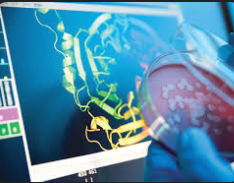
Revolutionise medical test development with our innovative framework poised to break through the bottleneck in translating novel biomarkers from research to clinical use. Despite the potential of mass spectrometry to address traditional assay issues, only 1.5 new protein tests are approved in the US annually. Our model combines expertise in mass spectrometry assay development, clinical translation, and automated platforms, augmented by software for rapid biomarker translation.
Introducing a service offering hundreds of protein assays, our framework challenges the norm with cost-effective solutions. Unlike outdated libraries costing over £1000 per sample, we provide assays at <£50 with turnaround times of a few days. Our malleable mass spectrometry platform allows easy customisation or panel expansion.
With Know-How protection for our novel framework, a filed patent for SVEP1 assay, and copyright on incorporated software, we aim to spin out from the University of Leicester. Challenges include funding for company setup, website development, and marketing. Join us in advancing this project urgently, contributing skills in company development, website creation, branding, and marketing. Collaborate with us to stake our unique approach in the thriving global omics market.
Rapid whole genome sequencing (rWGS) is a new technique of diagnostic application of genomics. In particular, it is used for children in neonatal intense care unit or pediatric intensive care unit. It is an expensive procedure, but it shows to be cost-effective in the long term when comparing to healthcare cost for undiagnosed children.
In UK this technique is included in the NHS Genomics Test Directory. However, this life-changing technology is not available in other countries of the world, especially in rural area.
In parallel, sequencing technology has been improved in recent year, and Oxford Nanopore is offering machine for portable sequencing.
My idea would be to test the application of portable genome sequencing in rural and emergency context, such as for critical-ill chrildren.
In doing so, I would need suggestions from people who have experience in rWGS as well as experts in portable human genome sequencing and data analysis. Finally, the team will benefit from the interaction with professionals and clinicians working in variant interpretation, especially for children diseases.
This idea is trying to use technology to bring state-of-the-art Genomics diagnostic in places in which it was not possible before.
If successful, this technique could be used in any part of the world with limited financial and infrastructure resource and it could be commercialized to National and International Health agencies, such as WHO.
The idea will also include a part of genomic education and engagement with the rural communities of interest.
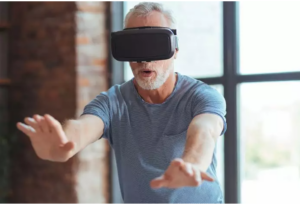
Embark on a groundbreaking journey with our innovative project, revolutionising Parkinson’s care. Addressing the pervasive issue of impaired balance in individuals with Parkinson’s, we introduce a pioneering solution that combines virtual reality exergaming with cutting-edge Electroencephalography (EEG) neurofeedback.
Our specially designed exergame, delivered in virtual reality, engages participants in a dynamic road-trip, challenging them to dodge incoming balls and catch stars to score points and unlock rewards. The game’s performance is intricately linked to real-time EEG brain activity, offering a unique approach to improving movement control and balance.
This project marks a significant leap forward in Parkinson’s rehabilitation, merging neural, physiological, and cognitive interventions. As we explore licensing agreements and potential patents, the project opens avenues for collaboration, including partnerships with Stroll UK, a recognised NHS supplier. To propel our vision further, we seek funding to expand our team, driving commercialisation efforts and developing additional therapeutic games. Join us in reshaping the landscape of Parkinson’s care, reducing falls, enhancing quality of life, and unlocking possibilities for broader clinical applications.

Embark on a transformative journey with C-Steps, a web application designed to enhance cognitive abilities in learners while providing valuable insights for teachers. Positioned for integration into Learning Management Systems (LMS), C-Steps seeks to revolutionise learning and teaching practices, catering to education providers, training providers, higher education institutions, and corporate entities.
Development opportunities abound as C-Steps can seamlessly become an integral part of any LMS, offering a scalable solution for widespread implementation. The primary challenge lies in clarifying the potential patentability of the innovation as a method or process, followed by refining the platform for an optimal user experience.
To advance this visionary project, key resources such as an IP expert, development manager, and initial server space (already secured with the university IT team) are essential. Collaboration opportunities are extensive, welcoming partnerships with IP experts, education providers, training providers, and corporate entities. Join us in shaping the future of learning and teaching through technological innovation, making a lasting impact across various sectors.
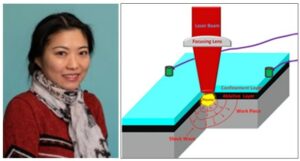
This technology uses real time Acoustic Emission (AE) measurements and a novel AI technique to achieve an intelligent online monitoring system to optimise industrial processes, e.g., predictive maintenance of plants and machines, etc.
This technology will add a great value to the optimisation of industrial processes by increasing efficiency and reducing waste. For any process, this class of AE-AI systems does not exist as present, and its novelty will create traction for commercial benefits.
This novel AI technique creates a unique bio-plausible neural network technique and includes realistic representation of the hearing mechanism.
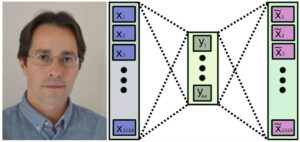
This technology is a new class of artificial neuron that can be incorporated to various AI architectures, in particular for the case of Spiking Neural Networks (SNNs). The new neuron is termed Stochastically Delaying Spiking Neuron (SDSN) and its defining feature is that it is more robust to asynchronicities in the data.
SDSN is partly inspired by the asymmetrical delay effects introduced in the human auditory system prior to neural processing.
This technology can be applied to engineering process monitoring, financial data monitoring, etc.
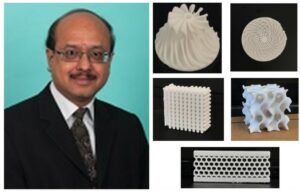
This invention is a method for concentrating advanced ceramic nanosuspensions, particularly zirconia nanosuspensions. Nano size powders have a tendency to agglomerate during processing resulting in nanocomponents which may have undesirable material properties. Our invention comprises of a method of generating dispersion of nano-powder particles in the liquid, reducing the liquid content to concentrate the nanosuspension and processing of advanced ceramics using pressure-less sintering method.
These suspensions and their powders can be made suitable for 3D printing complex ceramic components for applications in high temperature metal filtration, ballistic protection, energy storage, biomedical implants etc.
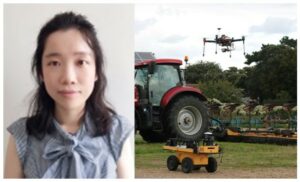
Safe and accurate landing is crucial for Unmanned Aerial Vehicles (UAVs). However, it is a challenging task especially when the altitude of landing target is different from the ground and when the UAV is working in adverse weather conditions, such as coasts where winds are usually strong and changing rapidly. This invention is an autonomous docking function for drones on a small size of ground robot in adverse weather conditions. It can achieve a robust landing accuracy and deal with complex turbulence arising during the docking process, attributed to variations in altitudes among components on the docking platform. This innovative solution provides a versatile application across a range of UAVs, including small and medium size drones.
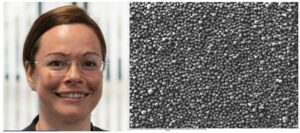
Uniform spherical silica particles (up to 100µm) with controlled porosity can be used in drug delivery applications to enhance the delivery of drugs and these custom-made silica particles can be used for capturing and storing hydrogen or CO2 to address challenges related to energy and environmental sustainability.
Traditionally, porosity within these silica particles is made using surfactants which are harmful to the environment. Coupling emulsification methods and Dr. Dragosavac’s knowledge on formulation, we have developed a manufacturing method capable of producing silica particles (up to 100 μm ) with precisely tuned particle sizes and internal structure, without the use of surfactants. This simplifies the manufacturing process and enables us to tailor the particles for a particular application such are drug delivery, insulation, chromatography, and hydrogen or CO2 storage.
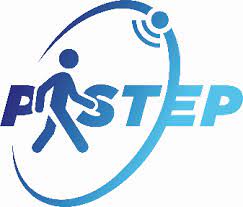
The University of Leicester and Leicester’s hospitals have secured £2 million from the UK Space Agency, in collaboration with NHS England and the European Space Agency, to develop a mobile app addressing the challenge of managing long-term conditions for the NHS’ 70th birthday. The Personalised Space Technology Exercise Platform (P-STEP) app will leverage space data and artificial intelligence to provide disease-specific exercise advice at a 10-metre resolution, including pollution warnings. Led by Professor André Ng, the Leicester team aims to combine high-resolution air quality data with personalised exercise guidance, addressing concerns for patients with conditions like heart disease and asthma. The app aims to simplify exercise prescriptions, improve well-being, and mitigate the impact of air pollution on health. The demonstrator project is being delivered by a broad team including clinicians, computer scientists and informatitions, health psychologists, primary care providers and environmental health and Earth observation experts in collaboration with EarthSense, a local SME.
In colaboration with:
